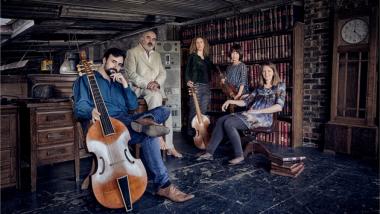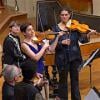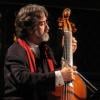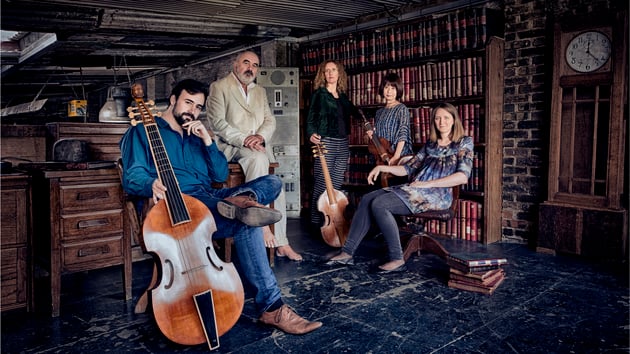
Time ran out early for Henry Purcell, who died at only 36 (of tuberculosis, most likely; though a well-known anecdote ascribes his death to a chill caught by being locked out of his house by his wife, after a night of drinking). In his music, if not in his life, Purcell knew how to make time stand still.
Purcell’s stunning song, “Music for a while / Shall all your cares beguile,” was written for a theatrical adaptation of Oedipus (of all things!), evoking the possibility that, just for a moment, through music, that dreadfully destined tragic hero could forget his torments. Tamed by music, even the snakes on the head of the vengeful goddess Alecto fall away from her one by one in a series of nine off-beat eighth-notes, “drop, drop, drop ...”
Sunday, I heard that Purcell song performed by British countertenor Iestyn Davies, who beautifully suspended time with his sweet, unhurried phrasing. “How with this rage shall beauty hold a plea?” asked Shakespeare about time and mortality. With Davies’s voice and Purcell’s uncanny sense of rhythm, beauty had plenty to say in the face of mortality.
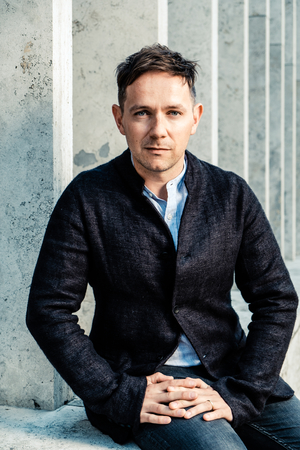
Davies collaborated in this Cal Performances presentation (appropriately, in the warm acoustics of UC’s Hertz Hall — which Davies praised in his closing remarks to the audience) with the distinguished British ensemble Fretwork, five players of the viola da gamba, who are individually masters of the instrument and collectively an ensemble that plays with stunningly tight-knit accuracy and expressive sensitivity.
In the summer of 1680, the 21-year-old Purcell inexplicably took time out of his burgeoning career in the service of court entertainment and London opera to write nine fantasias for viol quartet, three of which Fretwork performed on this program. By 1680, the viol fantasia was your grandfather’s music — slow and solemn, introspective, and polyphonic — distinctly not the kind of hip music a young composer should have been writing in the newly prosperous English capital. Purcell’s fantasias are gorgeous throw-backs, time-stopping homages to the importance of the composers of earlier generations — William Byrd and John Jenkins among others.
Fretwork’s mastery of this music is unparalleled. Their perfect tuning (and to their credit, they didn’t spend much stage time adjusting the notoriously difficult gut strings of the gamba) doesn’t just make the expected chords sound great: it sets up the unexpected, the “crunches” (technically, “cross-relations”) where (say) an F-natural in beat three is suddenly forced to greet an F-sharp in beat four — or sometimes both on the same beat. The resultant tension, sharp as it is, never lasts long: the lightning-bolt of dissonance vanishes swiftly back into the currents of harmony, coursing toward a long-deferred resolution.
Inventively, Fretwork and Davies paired Purcell with contemporary composer Michael Nyman, the British “minimalist” (he coined the term), known for his film scores (Jane Campion’s 1993 The Piano, for example, and most of the avant-garde films of Peter Greenaway). Nyman studied early music in London under the musicologist Thurston Dart, and despite the obviously post-modern sound of his music, it has clear connections with the baroque — among them, his obvious affinity with the musical trajectory of harmonic progression, and his fascination with a long-sustained “affect.”
The most effective of the Nyman contributions was his song cycle No Time in Eternity, based on seven short poems by the 17th-century English poet Robert Herrick. In Herrick’s poems, the hectic destiny of mortals (we are all time-driven — ”By hours we all live here”) is sharply distinguished from the timelessness of heaven. And heaven, for this notoriously secular Anglican priest, closely resembles the bliss of a beautiful afternoon concert of music, where harmony strikes “a stillness into hell.” Nyman’s setting is through-composed (that is, there’s no break between the poems) and has the feel of a 17th-century viol fantasy: a sequence of related, but ineffably different episodes, none of them too long (befitting the poems’ edgy relationship with time).
Fretwork also played two instrumental pieces by Nyman, one an homage to Purcell and the other an arrangement of a piece originally written for the Swingle Singers. Neither fully convinced me that Nyman’s highly repetitive music, in longer forms, works well on viols: the viols couldn’t manage the tonal and acoustic edginess that would have made the music really compelling. Nyman’s energetic rhythmic motives, richly portrayed by Fretwork with their masterful bowings, didn’t sustain my interest for the long haul.
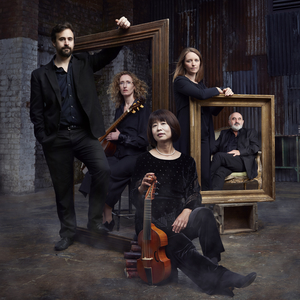
Davies gently and forcefully delivered two tender ballads by Nyman, “If” and “Why,” setting sentimental texts by Australian poet Roger Pulvers. The program ended with a much more energetic Nyman piece, a setting of an ancient Assyrian hymn, the startling “Self-Laudatory Hymn of Inanna and her Omnipotence.” I’m not quite convinced that this assertion of the power of a fierce goddess should be sung by a male counter-tenor, but Davies gave us a memorable rendition of Inanna’s in-your-face pride: “Is there one god who can vie with me?” Herrick would have been appalled by her stridency, but I rather liked the daring contrast with his quieter poems about mortality and time.
In an encore, Fretwork and Davies shifted us back to 17th-century melancholy, with William Byrd’s lovely lament on the death of Thomas Tallis, “Ye Sacred Muses.” Here time really did seem to come to a stop, spectacularly fading into silence with Byrd’s (and Davies’s) final, sorrowful question, “Can beauty die?”
Beauty did not die, not at least in the short duration of this lovely concert. Whether it can live on in the world of fires, outages, and other outrages, is another matter.

